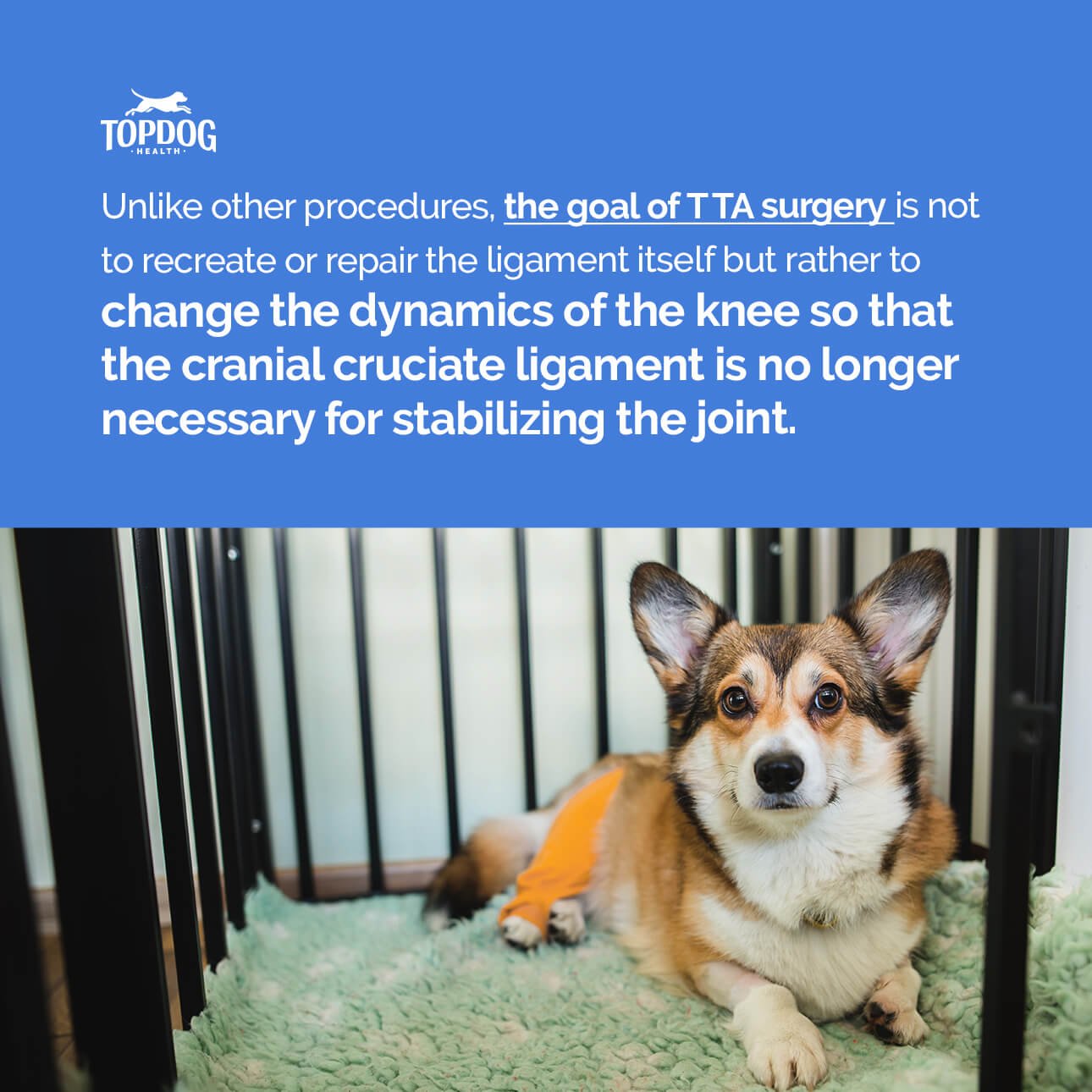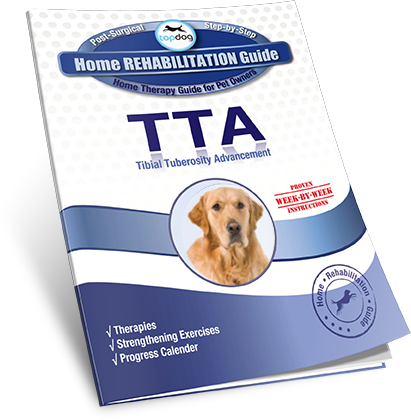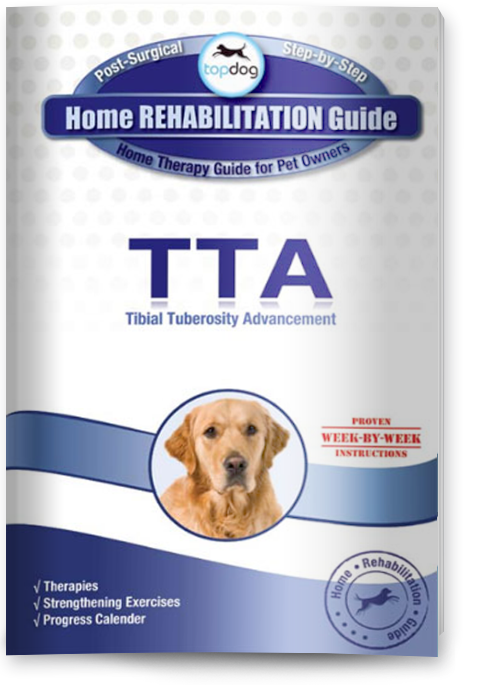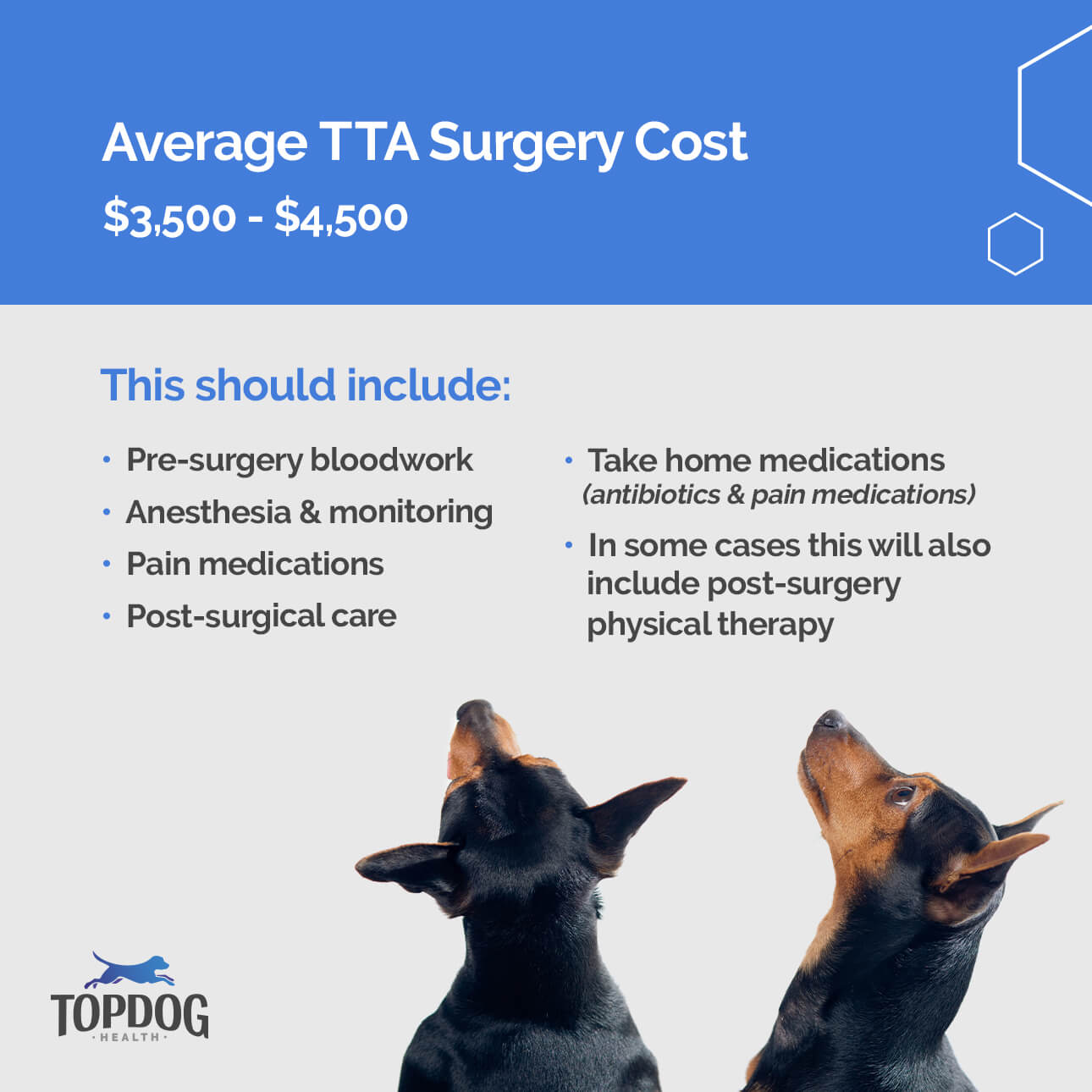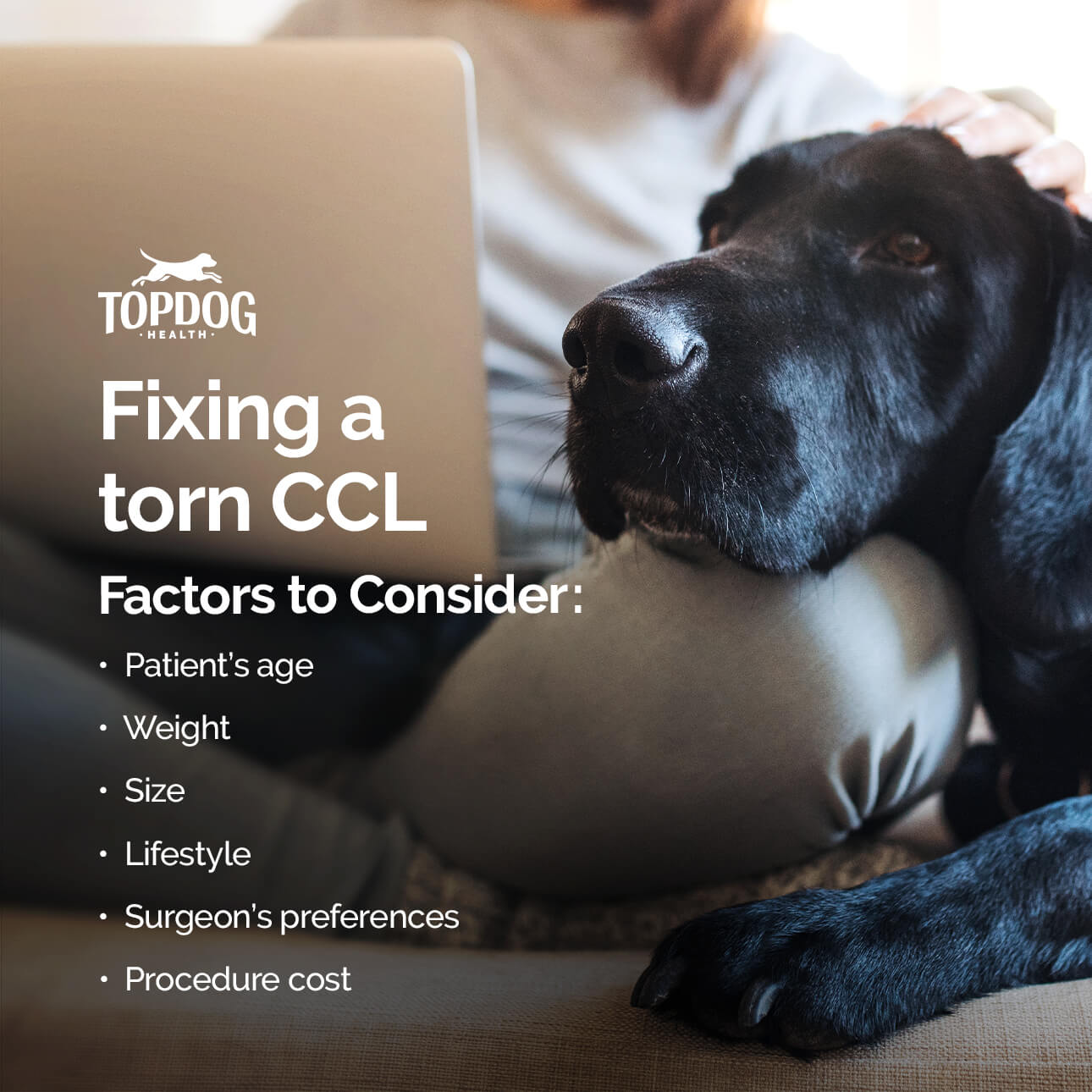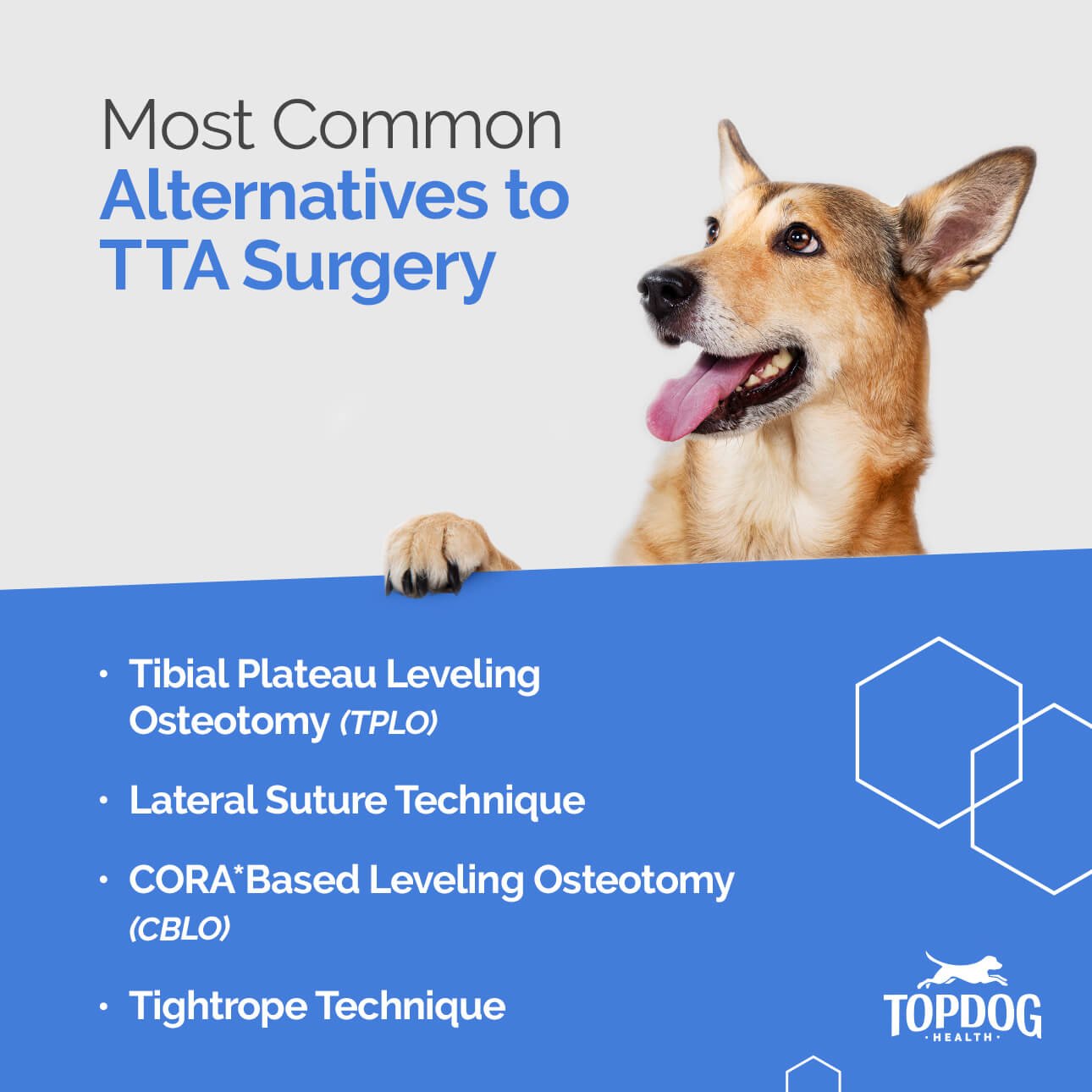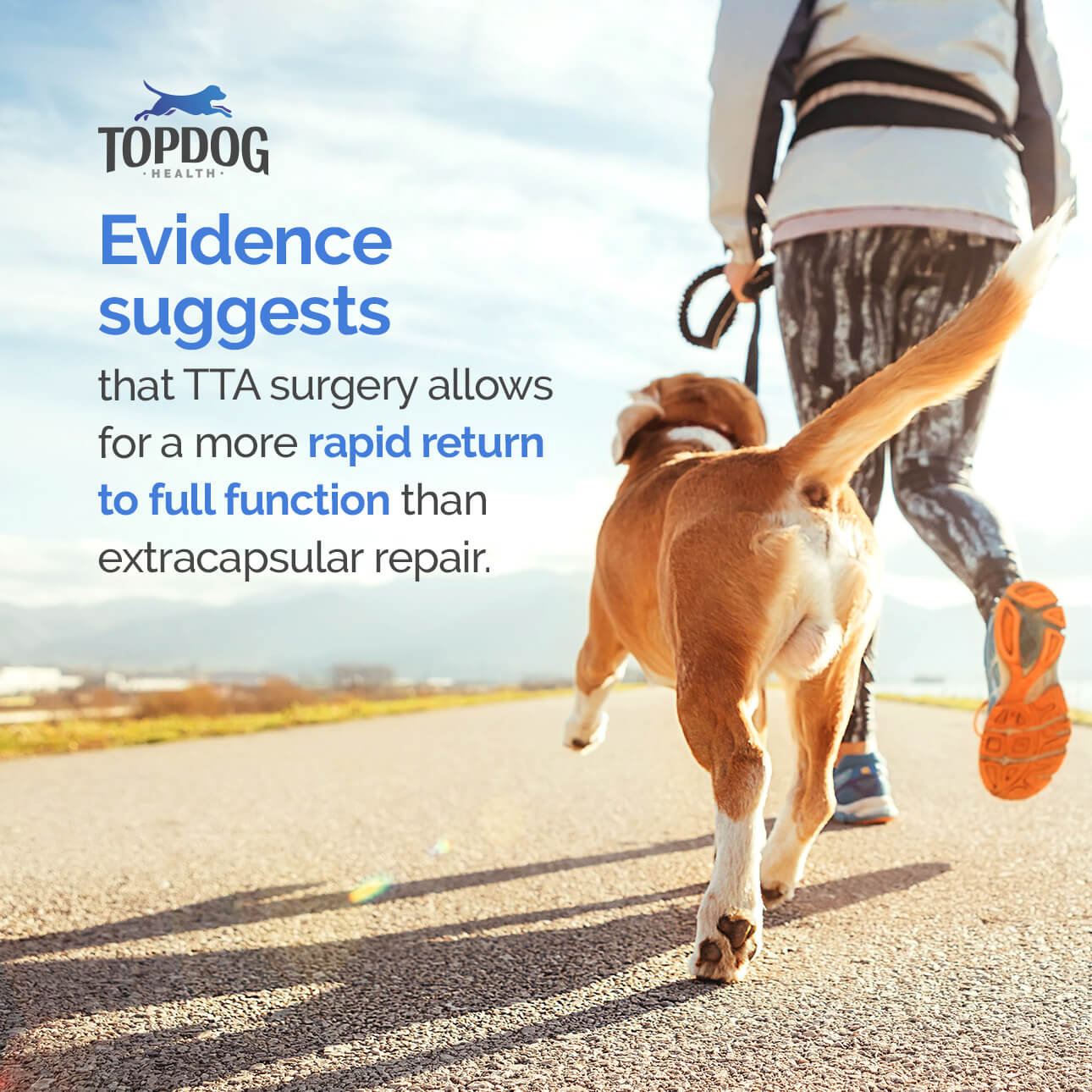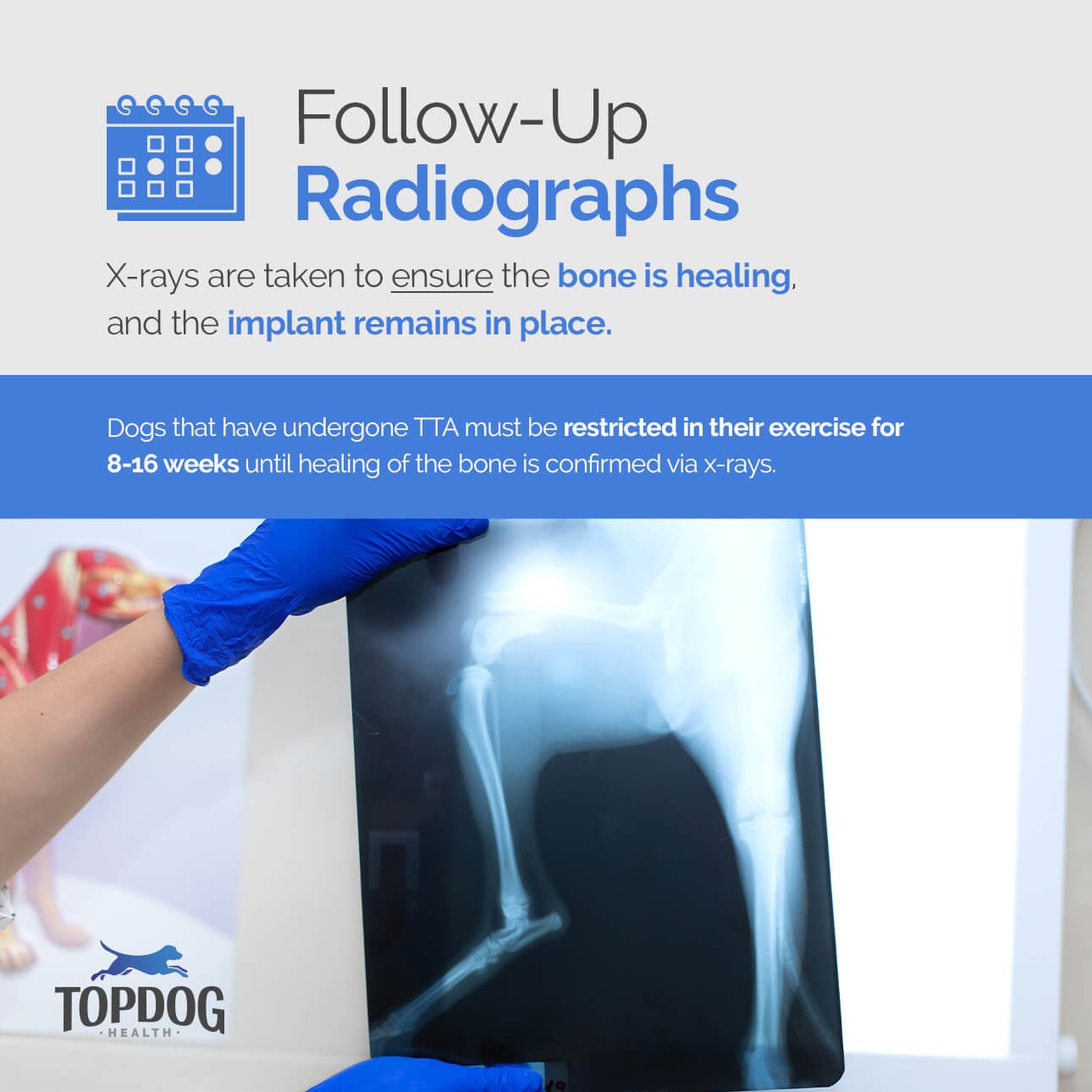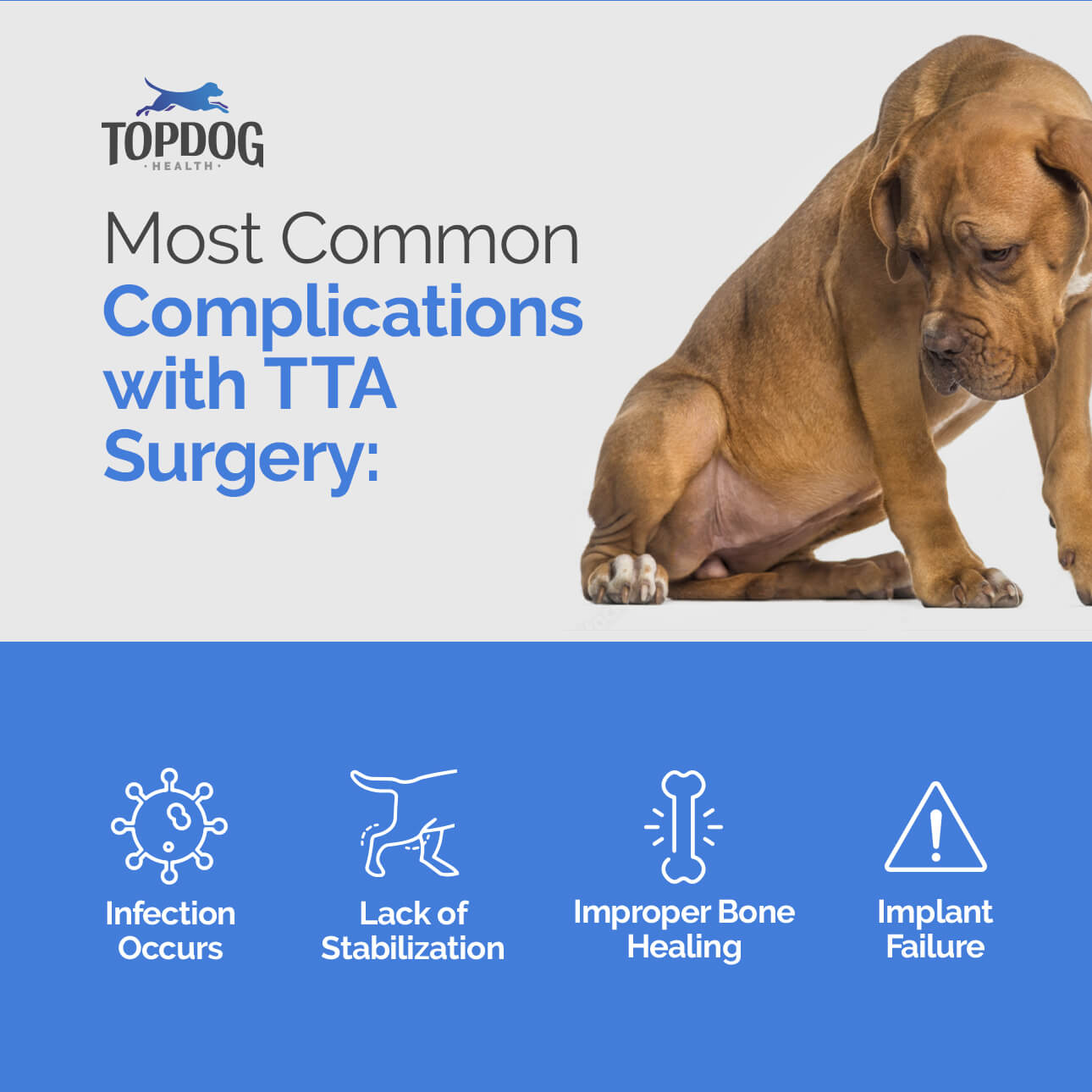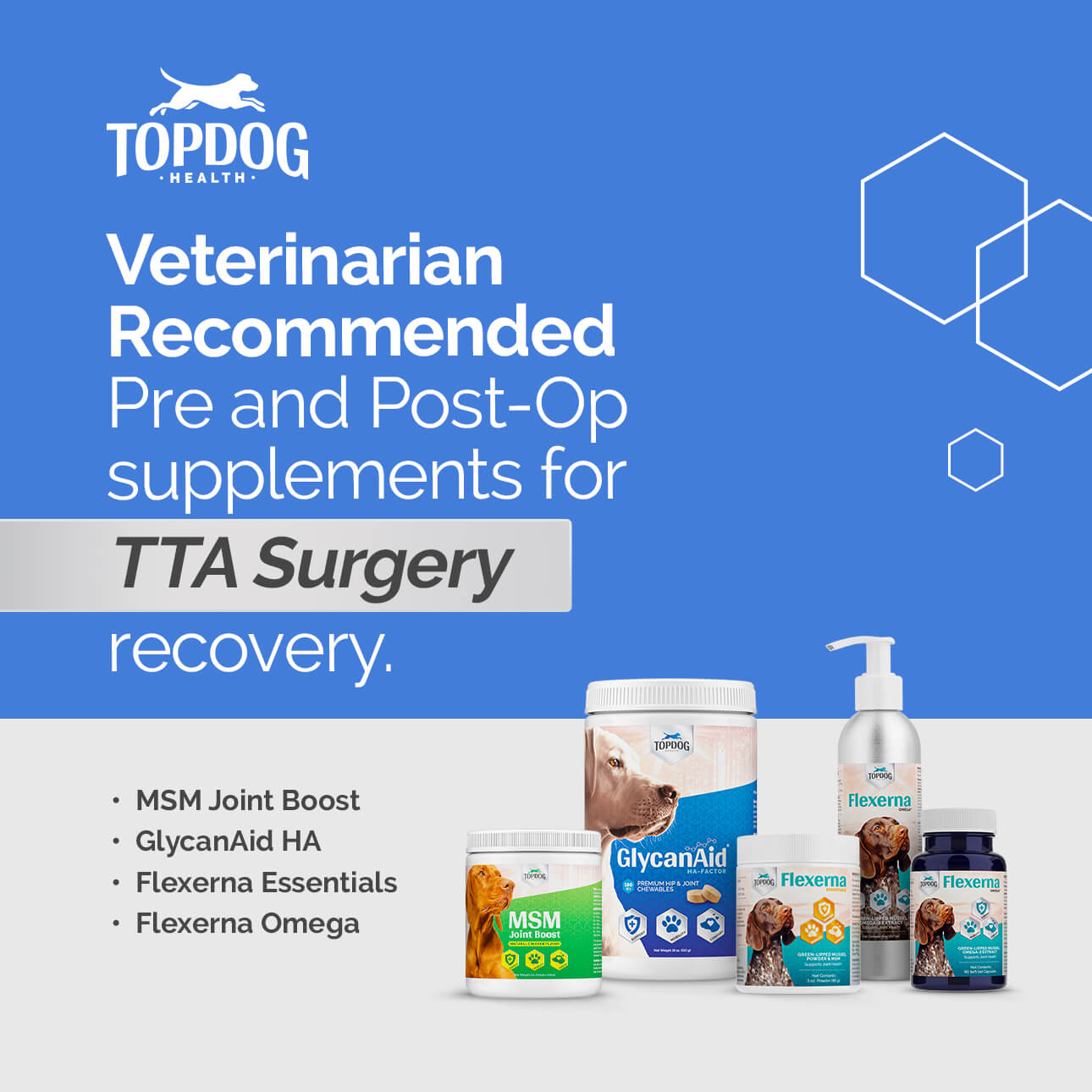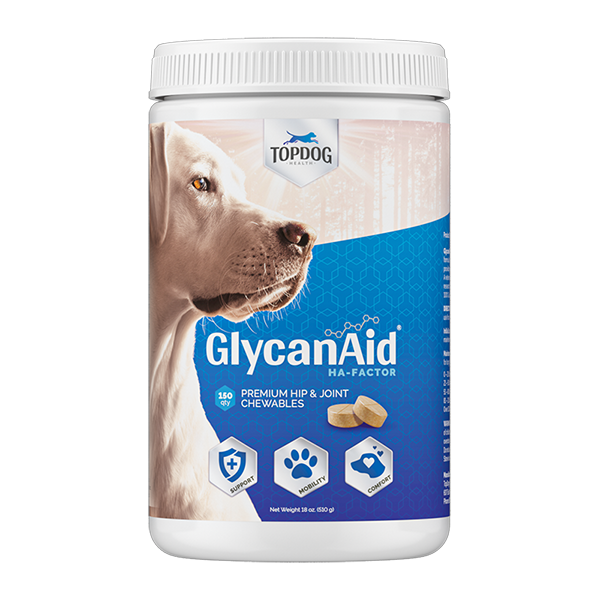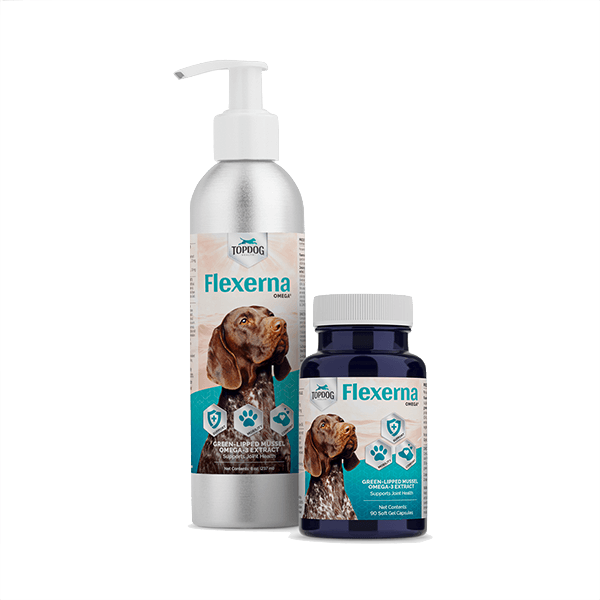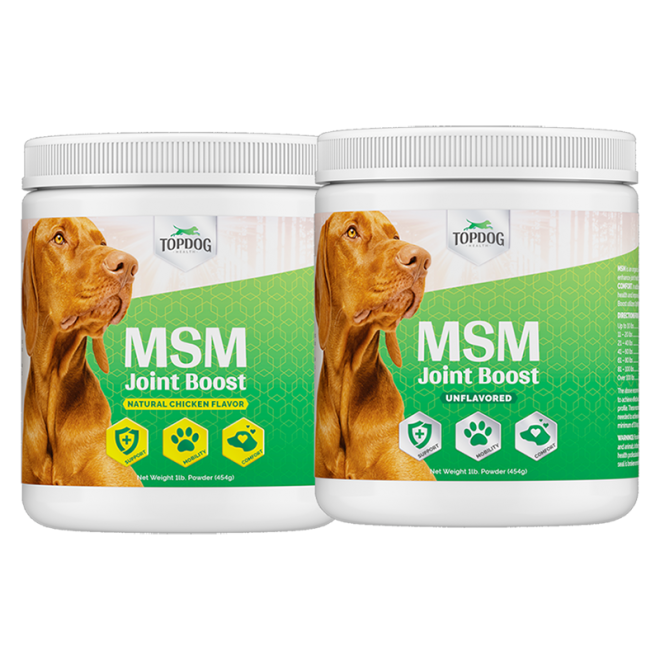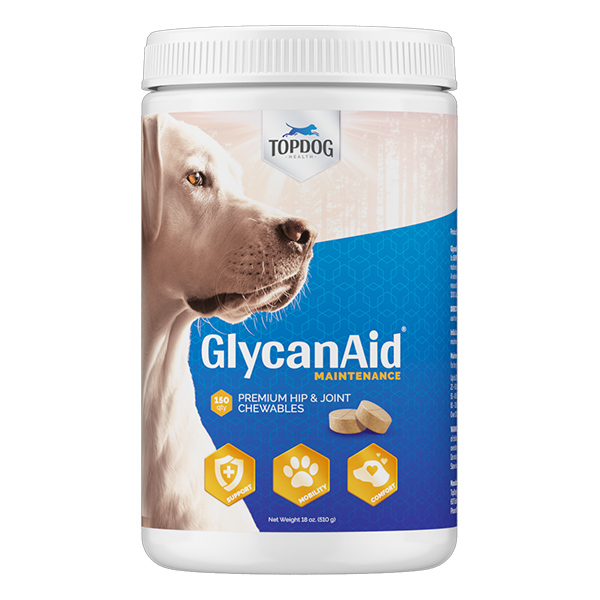Cruciate surgery is performed to repair a torn cranial cruciate ligament (CCL) in the stifle (knee), which is analogous to the ACL in humans. CCL surgery is the most common orthopedic surgery performed in dogs. Given that this is such a common injury, several procedures have been developed over the years to repair the ligament. Each technique comes with its advantages and disadvantages, so it is important to discuss the options with your veterinarian to decide which procedure is best for your dog. Factors to consider when choosing the technique to repair your dog’s torn CCL include the patient’s age, weight, size, and lifestyle. The surgeon’s preferences, as well as the cost of the procedure, are also factors to consider.
A tibial tuberosity advancement (TTA) is used to treat a torn cranial cruciate ligament (CCL). Unlike other procedures, the goal of this surgery is not to recreate or repair the ligament itself, but rather change the dynamics of the knee so that the cranial cruciate ligament is no longer necessary for stabilizing the joint. In this procedure, a linear cut is made along the length of the tibial tuberosity, which is the front part of the tibia. This cut bone is then advanced forward, and a specialized bone spacer is placed in the open space between the tibia and the tibial tuberosity. Finally, a stainless steel metal plate is applied in order to secure the bone in place. Because the patellar tendon attaches to this tibial tuberosity, once it is advanced, the tendon keeps the femur from sliding back and forth and therefore stabilizes the knee joint and eliminates the need for an intact cranial cruciate ligament.
Additionally, rupturing the cranial cruciate ligament leads to instability in the knee, which can lead to damage to other structures within the joint, including meniscal tears. This is where appropriate diagnostics become important. Finding the extent of the injury will aid in choosing the correct procedure for your dog, and will increase the chances of a successful recovery. RETURN TO TOP


